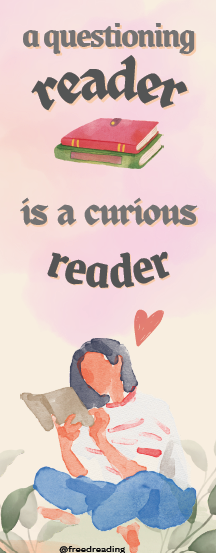
Essential Questions in Lesson Plans
It’s easy to get swept away in content and forget to include essential questions in lesson plans. This is especially important when teaching reading in ELA classrooms where skill development can overshadow the heart of humanities. Essential questions are the perfect fusion. A questioning reader is a curious reader. Below I cover the basics of essential questions, and then I dive into some fresh ideas, especially as they apply to literacy. This post is also available via Instagram video.
What are essential questions in a lesson plan?
Engaging Readers and Writers with Inquiry by Jeffrey Wilhelm built my initial understanding of essential questions, and I’ve referred to it over the years.
According to Wilhelm, essential questions (44)
- make content culturally interesting and relevant to students.
- require disciplinary knowledge to answer
- have “emotive force , intellectual bite or edginess”
- are open-ended and arguable with more than one right answer
- are “concise and clearly stated”
- have resources that aid in answering them
- “may lead to new questions asked the students”
Essential questions are not (56)
- googleable. There is more than one answer.
- “guess what the teacher knows.” It is not something the teacher has already answered with a foregone conclusion.
- “leading.” This would point students to one answer instead of inviting multiple perspectives.
- too general or generic. If it’s too broad, it can’t be adequately addressed within a unit’s timeframe.
- too narrow or specific. It must require in-depth investigation. It can be complexified by adding additional resources (maybe even some that contradict, counter, or add nuance to earlier sources).
Writing Essential Questions
Here are some common essential question frames. Within these frames, it’s important to remember the “are not” list above to ensure the questions remain high-quality.
- What makes a good…?
- How can we improve…?
- How does X influence Y?
- How can we use what we know about X to…?
- Is it ever permissible to…?
- What is a…?
- Should we ever…?
- What is the relationship between X and Y?
- Why…?
- How does X work?
- Is X necessary?
- What are the costs and benefits of X?
Importance of Essential Questions in Lesson Plans
To me, essential questions are important because they cultivate democratic citizens. Students
- approach the world from a curious, meaning-making stance.
- develop literacy skills in service of something greater than the skill itself.
- are awake to the promises of self-education over misinformation and sound bites.
- develop care for their world.
- practice stance-taking to examine issues from multiple perspectives.

Essential Questions for a Unit Plan
This is the most popular method for including essential questions. On the first day of the unit, the teacher introduces the essential questions for a unit plan. They might:
- Plan an activity that raises the question
- Include students in a discussion
- Have students read an introductory text that addresses the topic
Ideally, the essential questions are revisited through additional resources and discussion, finishing with a culminating project or experience.
Different literacy units hold the promise of different kinds of essential questions for a unit plan.
- Novel/Reading Units: What essential question is the author attempting to answer? How do they answer it? How do other authors and artists answer it? Scientists? What do you think? What would your community say? What additional questions are raised by answering the first one?
- Narrative Writing: What essential question are you exploring with your writing? How would each of your characters answer that question? How do you ultimately want to answer it?
- Research: What essential question is guiding your research? How have researchers attempted to answer it? What limitations exist in the current research? What additional questions does your inquiry raise?
Related Post: Powerful Questions for Book Clubs in High School, 7 Ways To Create Teacher Clarity in the Classroom
Essential Questions in Lesson Plans for Literacy
In moving from unit plans to lesson plans, essential questions tend to get more schoolish. What enduring question can be answered in a day? Not many. However, an essential question built on a mountain of school questions quickly loses its appeal.
Instead, embed essential questions within the four moves every literacy lesson plan needs for soaring growth.

- Hook students with culturally interesting and relevant questions that can activate prior knowledge.
- Develop disciplinary knowledge necessary to answer a question. Questions related to structure and vocabulary are important. So are questions that support students in acting like the professionals who read each kind of text.
- Include a variety of texts that build background knowledge and complexify the topic to lead to more interesting answers (and further questions).
- Provide open-ended and arguable questions for more lively discussions.
- Encourage students to write their own questions using the question frames above, then let them ask them in discussion or use them to do independent research and writing.
Related Posts: Why You Need a Thematic Lesson Plan in English Class, How to Make Magic with the Class Discussion Teaching Strategy
This post may contain affiliate links, meaning when you click the links and make a purchase, I receive a commission.




[…] method enlivens any text or topic. It serves as a solid tool for exploring and developing essential questions in the […]